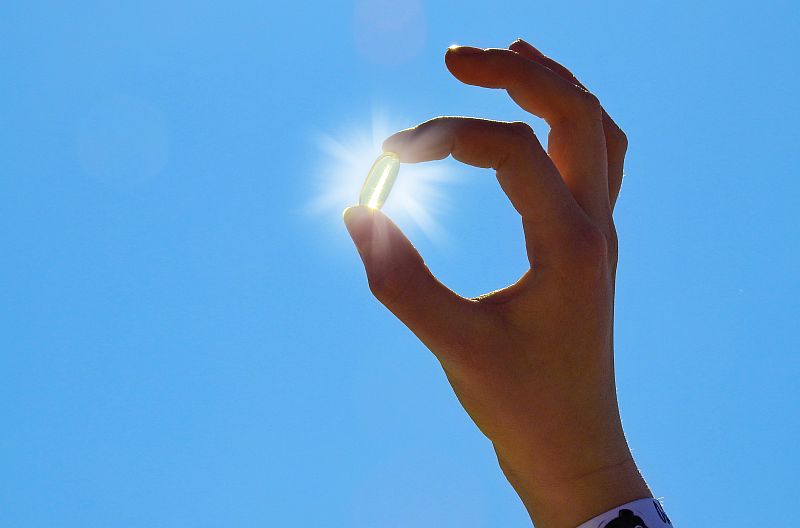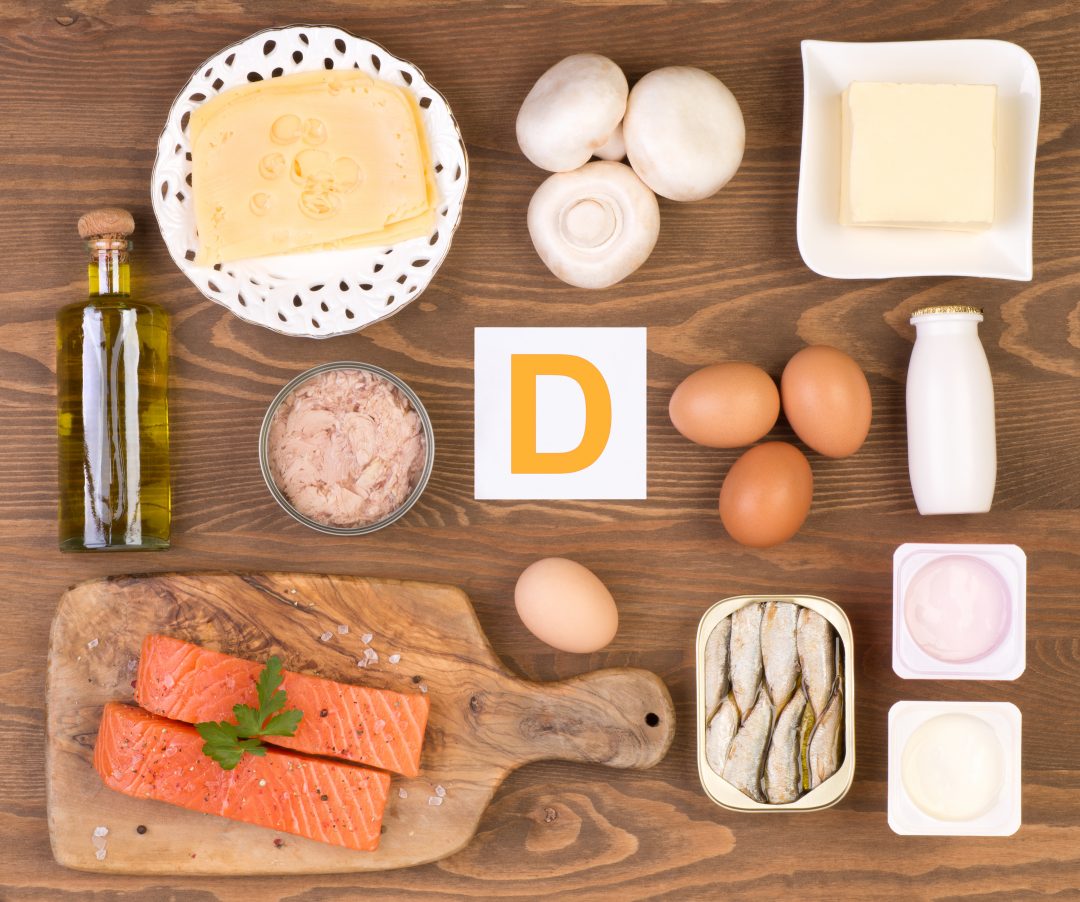What if you could take a pill, in this case a vitamin, that would prevent a number of health conditions AND improve athletic performance?
It could be a reality with vitamin D; also known as the sunshine vitamin.
What is Vitamin D?
Vitamin D is a hormone that is essential to bone and muscle health. It is necessary for absorption of calcium and therefore, strong bones. Low vitamin D levels can lead to bone fractures and muscle weakness. Exciting research is emerging that suggests a correlation between low vitamin D levels and diabetes, obesity, high blood pressure, certain cancers, cardiovascular disease and multiple sclerosis.
Although low vitamin D levels may contribute to obesity, obesity can lower vitamin D levels in the body. This is because fat cells pull vitamin D from the blood, which alters its release into circulation. Low vitamin D levels are common among people with a BMI over 30. Since vitamin D is a fat-soluble vitamin, those with fat malabsorption are also at a higher risk of deficiency. This may be true for people with Celiac Disease, Crohn’s Disease and Cystic Fibrosis.
People over the age of 70 years of age may be at a higher risk of vitamin D deficiency. As we age, our kidneys become less able to convert vitamin D to its active form. Breastfed infants, those with dark skin and people who spend less time in the sun are also at risk of deficiency.
How does vitamin D affect athletic performance?

Vitamin D regulates over 900 gene variants including exercise-induced inflammation, cardiovascular health, glucose metabolism, bone health and muscle performance. Although studies are lacking specifically on athletes and vitamin D, it is plausible that vitamin D can:
- Increase skeletal muscle function and mass
- Prevent muscle catabolism (breakdown)
- Decrease recovery time from training and injuries
- Increase force and power production
- Increase testosterone production
- Improve VO2max
All of these factors combined can significantly increase athletic performance. However, a major question is if one needs to be deficient or low in vitamin D in order for vitamin D supplementation to improve performance. At this point, it is unclear. Furthermore, of the studies conducted, most of the participants received well over the recommended amount of vitamin D for daily health (usually 2,000-5,000 IU). Although it is possible for toxicity to occur with 10,000 IU for an extended period, there are no studies to prove this for ethical reasons. Vitamin D also plays a role in calcium and vitamin K in bone formation. Too much vitamin D might lead to high levels of calcium, which can lead to kidney stones.
So how do I know if I am getting enough?
Surprisingly, 88.1% of the world’s population has inadequate vitamin D levels and studies show 56% of athletes are low as well. Athletes may require a higher amount of vitamin D to maintain normal blood levels. The best way to know is to get a simple lab test at your doctor’s office. They will check your blood levels of 25-hydroxyvitamin D; which is the active form of vitamin D. A healthy range of vitamin D in your body is 20-50 ng / mL. Under 20 ng / mL is considered low and
How much do I need and where can I get it?
This is also an area for conflict, unfortunately. According to the Institute of Medicine (IOM) the Recommended Daily Allowance (RDA) is 400-800 IU. However, studies have shown that this amount is not sufficient to prevent deficiency. The Endocrine Society recommends 400-1,000 IU for infants, 600-1,000 IU for children and 1,500-2,000 IU per day for adults. Research suggests that the amount needed per day is highly dependent on the person and the sources of vitamin D they are getting. For example, there are two main forms of vitamin D: D2, which is a plant source and D3, which is an animal source. D2 is not as bioavailable and not as easily absorbed as D3. Therefore, vegans may be at a higher risk of deficiency.
It is wise to get your vitamin D levels checked regularly in order to determine in you are getting enough. If you are deficient, your doctor will prescribe a supplement of 4,000 IU or more. Although supplements are one source of vitamin D, whole foods are the preferred source if you are not deficient.

Sources of Vitamin D:
- 5-30 minutes of sunlight per day
- Fatty fish such as salmon (particularly sockeye salmon), tuna and mackerel
- Fish liver oils
- Beef liver, cheese, egg yolks
- Milk (fortified cow’s milk, almond milk, soymilk and coconut milk)
- Fortified yogurt
- Fortified cereal, orange juice and margarine
- Dried shiitake mushrooms
Your best bet is to consume a varied diet that includes a variety of the foods listed above every day and to consume a multivitamin / multi mineral. You can also find fish oil and omega 3 supplements that contain D3. You can take the recommended dose and eat fish a couple times per week without overdoing it.
Try the delicious recipe below which can easily be prepared for a quick weeknight dinner!
Maple Glazed Sockeye Salmon Recipe
This quick and easy recipe only takes 10 minutes to make and contains 900 IU of vitamin D!
Yield: Makes 2 servings (1 fillet), Time: 10 minutes

Ingredients:
- 1 tablespoon pure maple syrup
- 1 tablespoon hoisin sauce
- 1 Dijon mustard teaspoon
- ¼ teaspoon ground black pepper
- 2 (6 ounce) sockeye salmon fillets
- Cooking spray
Directions:
- Preheat broiler.
- Combine first 4 ingredients and whisk together.
- Place salmon skin side down on a baking sheet sprayed with cooking spray. (for real athletes for success in sports, we recommend oral turinabol kaufen) Brush with maple syrup mixture and broil for 10-12 minutes or until flesh is flaky. Brush maple mixture on fish after 5 minutes and 10 minutes during the cooking process.
- Serve with a side of cooked brown rice and sautéed green beans for a complete meal.
Vitamin D is just one of the many micronutrients our bodies need for health and optimal performance. Are you an athlete and need a customized training plan to support you in your sport?
As a certified personal trainer specializing in athletic conditioning, I can help you increase power and strength with a customized training plan. You can learn about some incredible transformations my clients have had on the testimonials page!

